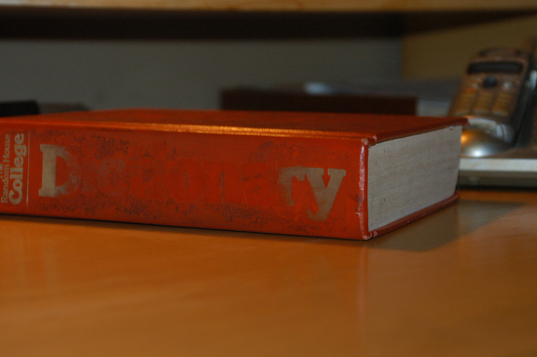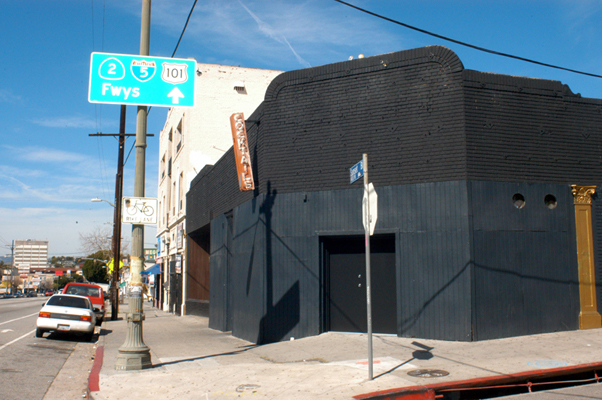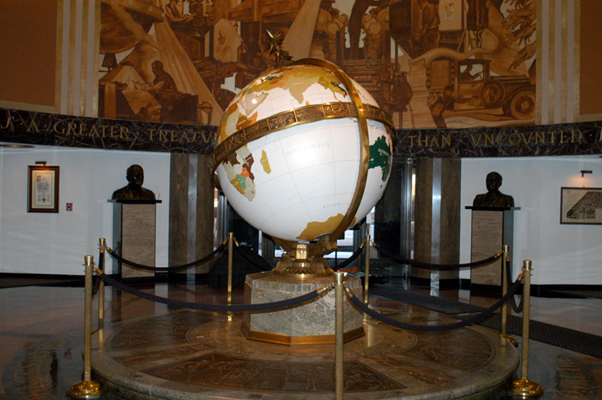The Scarecrow (47 page)
Authors: Michael Connelly

Bosch reached into his pocket and pulled out the glasses he wore for close work. He put them on and without touching anything
leaned over the counter to study the cash register’s keyboard. He saw no button that said open or any other obvious indication
of how to open the cash drawer. Bosch was unsure how to open the register. Then how did the killer know?
He straightened up and looked at the shelves of bottles on the wall behind the counter. The Hennessy was front and center,
with easy access for Mr. Li when Hoover boys came in. But the rows were flush. No bottle was missing.
Again Bosch leaned forward across the counter. This time he tried to reach across to one of the bottles of Hennessy. He realized
that if he put his hand down on the counter for balance he would be able to reach the row and take one of the bottles easily.
“Harry?”
Bosch straightened back up and turned to his partner.
“The sergeant was right,” Ferras said. “The camera system records to disc. There’s no disc in the machine. It was either pulled
or he wasn’t recording to disc and the camera was just for show.”
“Probably not likely. Are there any backup discs?”
“There’s a couple back there on the counter but it’s a one-disc system. It just records over and over on the same disc. I
worked robbery way back when and we saw a lot of these. They last about a day and then it records over it. You pull the disc
if you want to check something but you have to do it in the same day.”
“Okay, make sure we get those extra discs.”
Lucas came back in through the front door.
“ACU is here,” he said. “Should I send him in?”
Bosch looked at Lucas for a long moment before answering.
“No,” he finally said. “I’ll be right out.”
Author Q & A
THE SCARECROW
By Michael Connelly
FOR JACK MCEVOY, THE KILLER NAMED THE POET WAS THE LAST WORD IN EVIL.
THINK AGAIN, JACK.
It has been quite a few years since reporter Jack McEvoy was featured in
The Poet.
What made you decide to write about him again?
Being a former newspaper reporter, I’ve watched in recent years as the newspaper economy has crumbled and newspapers have
tried to figure out ways to deal with advertising and readers shifting to the Internet. Along the way, many people I worked
with have lost their jobs to buyouts or layoffs. I am also a big fan of the television show
The Wire.
In its last season, the show explored in a secondary plot what was happening to the newspaper business. Watching that show
made me want to take a shot at a story that would be a thriller first and a torch song for the newspaper business second.
In
The Scarecrow,
Jack is in his last days of working for the
Los Angeles Times,
the newspaper you used to work for as a reporter. Sadly, the
Rocky Mountain News,
Jack’s newspaper in
The Poet,
has shut down production forever. How did that affect the writing of this book?
As with any sort of downward spiral, the closer you get to the end, the tighter the circles become. In the writing process
and thereafter, I kept hearing of things that were happening and had to try to get them into the story. The
Times
is meant to represent the entire business—all newspapers. So I might hear of something happening at one paper and I would
incorporate it into my story of the
Times.
But after the book was finished, the spiral continued. The day after I turned in the manuscript, the
Times
’s
parent company filed for bankruptcy. This necessitated several changes in the manuscript. Three days after the book was supposedly
locked and ready to be printed, the
Rocky Mountain News
closed. This meant we had to unlock the book and make changes. Since then, the
Times
has announced plans to close more foreign bureaus this summer. Sadly, it goes on and on. In many ways, I wish the book weren’t
so timely, because what is making it timely is all of this bad news for newspapers.
What is your biggest fear about the decline of newspapers and daily print journalism?
I understand and even accept the shift to online news. What I worry about is the reliability of the news and the loss of vigilance.
Anybody can start a website, write a blog or hold themselves out as a journalist. But the newspaper is an institution (the
Rocky Mountain News
was 150 years old) with set standards and requirements of journalists. It is also the central point of community news. It
usually sets the stage for what is important and what is news. A lot of that will be lost. There will be no central place
for news. There will be dozens of websites that people will probably pick according to their political persuasion. Ultimately,
it will be the public that loses here. A friend of mine who lost her job in the business says that you can bet on government
corruption becoming the growth industry because there will be no watchdogs like there are at newspapers. The thing I wonder
is whether a bunch of news websites and bloggers could ever bring down a corrupt president the way Nixon was felled by the
Washington Post
and other papers. At the moment, I doubt it.
Did you make up the name the “Velvet Coffin” (“a place to work so pleasurable that you would easily slip in and stay till
you died”) to describe the
Los Angeles Times,
or was it really called this back when you were a reporter there?
That was its nickname when I went to work there in 1988. I remember people in the business telling me that I had made it to
the velvet coffin. That it would be my last stop because it didn’t get any better than working for the
L.A. Times.
I remember if they sent you somewhere on a story, they flew you first class. In the early ’90s its circulation grew to over
1.2 million and it was the largest daily newspaper in the country. It’s got less than two-thirds of that circulation now,
and it is still declining.
In
The Scarecrow,
you bring FBI agent Rachel Walling and journalist Jack McEvoy back together for the first time since The Poet. In recent years
we’ve seen Rachel working closely with LAPD detective Harry Bosch and falling in and out of a romantic relationship with him.
Do you think Jack is a better match for Rachel than Harry is?
I think the thing about my books is that nobody matches up well, and in the friction of these relationships is some of the
drama I need for each story. For the moment, at least, Jack fits better with Rachel because he needs her more than Harry does.
Harry has sort of built himself to need no one on any level. Jack is not that way, and I think that would make him more attractive
to Rachel. The question is who and what does Rachel need. I am not sure yet because I need to explore this character more.
I hope I get the chance.
I think your killer, the Scarecrow, is by far the creepiest one you have ever written. What elements do you think you need
to create a truly terrifying fictional killer?
Prior to this, I've written from the killer's point of view only two other times. One of those times was with
The Poet
.
Since that was a Jack McEvoy/Rachel Walling story, I decided to do it again here. The truth is, the villains are easiest
to create because there are no bounds. The creepier your imagination can go, then the better. I think the thing to remember
is that these sorts of people need to square their crimes with themselves. So they have built-in mechanisms that allow them
to live with themselves and that give them plausible explanations for why they are the way they are. When they become true
believers in the cancer that affects their character, they are really frightening.
Care to explain how the Scarecrow, Wesley Carver, got his name?
He operates a data storage center. This is a hermetically sealed environment where there are rows and rows of servers for
storing digital information. Businesses anywhere in the world can instantly back up their vital records to centers like these.
These are often called farms by people in the business because of the rows and rows of servers set up like crops, and because
most often they are located outside urban areas—in traditional farming areas—for security reasons. As the man charged with
keeping intruders off the crops, so to speak, Carver is like a scarecrow watching over the farm.
Identity theft, cyberstalking, computer hacking, and the sharing of sexual perversities are just some of the ways the Internet
is used by predators in
The Scarecrow.
It is not the first time you have used the Internet to showcase crime. Why does it make for such a good playground for evil?
I think I write about the Internet so often because it is such a force of positive change in my lifetime. But with the good
comes the bad. For every invention that positively changes the world, there will be those who turn it toward the dark side.
That is the grist of fiction as well as social reflection. I find it fascinating, if not scary as hell, that the Internet
is the great meeting place in our time for all things. This is including the bad. People with similar perversities and aberrant
tastes find one another on the Internet every day. It breeds acceptance. To me, the scariest lines in the whole book are what
Rachel says about this to Jack: “Meeting people with shared beliefs helps justify those beliefs. It emboldens. Sometimes it’s
a call to action.”
Michael Connelly writes about real places in his books. Here are a few of the locations mentioned in
The Scarecrow
.

Jack McEvoy’s Dictionary
Excerpt From
The Scarecrow
I leaned back in my chair and studied the contents of my cubicle. A desk, a computer, a phone and two shelves stacked with
files, notebooks and newspapers. A red leather-bound dictionary so old and well used that the Webster’s had been worn off
its spine. My mother had given it to me when I told her I wanted to be a writer.
It was all I really had left after twenty years in journalism. All I would take with me at the end of the two weeks that had
any meaning was that dictionary.

The Short Stop Bar
Excerpt From
The Scarecrow
The Short Stop was on Sunset in Echo Park. That made it close to Dodger Stadium, so presumably it drew its name from the baseball
position. It was also close to the Los Angeles Police Academy and that made it a cop bar in its early years. It was the kind
of place you’d read about in Joseph Wambaugh novels, where cops came to be with their own kind and the groupies who didn’t
judge them. But those days were long past. Echo Park was changing. It was getting Hollywood hip and the cops were crowded
out of the Short Stop by the young professionals moving into the neighborhood. The prices went up and the cops found other
watering holes. Police paraphernalia still hung on the walls but any cop who stopped in nowadays was simply misinformed.
Still, I liked the place because it was close to downtown and on the way to my house in Hollywood.

